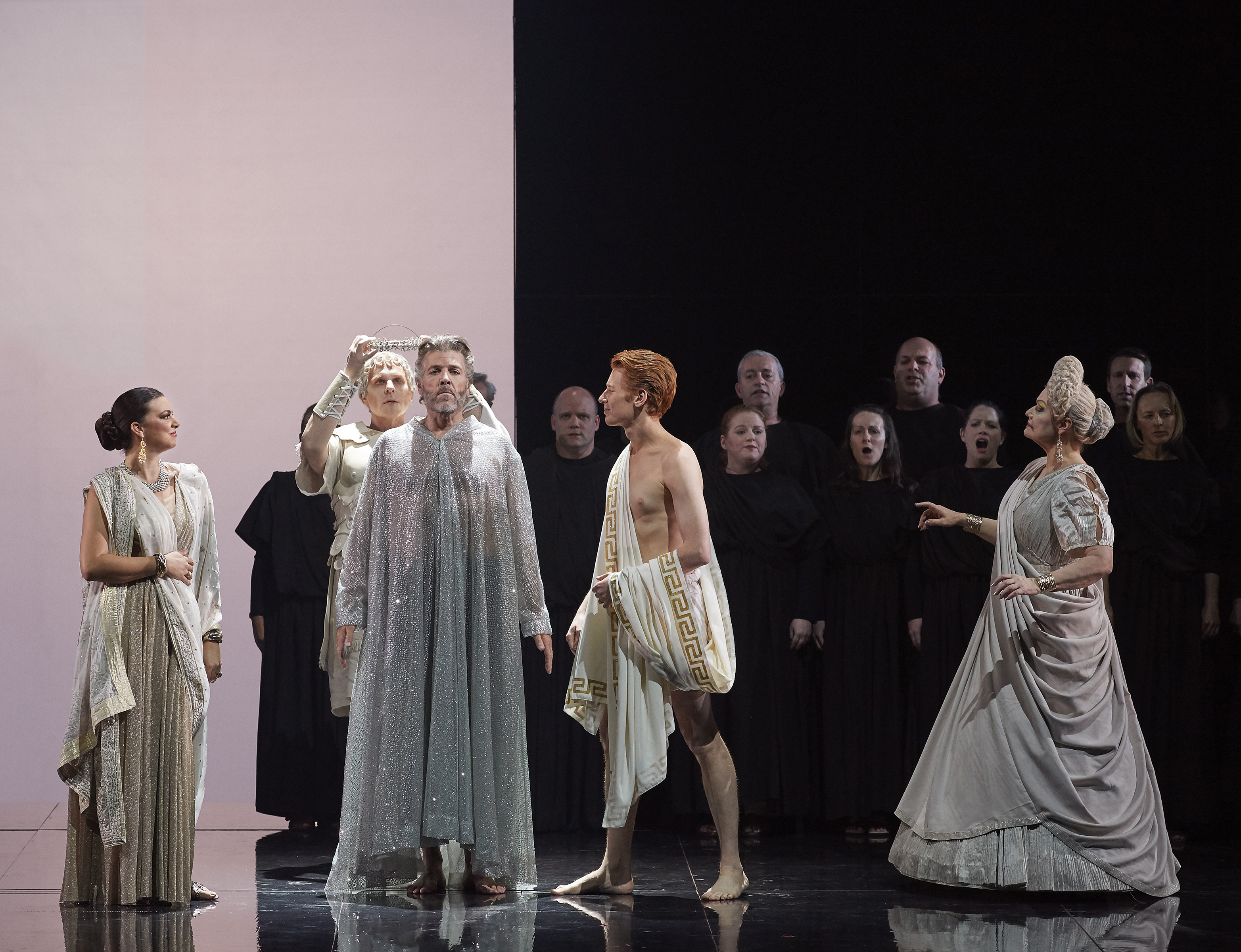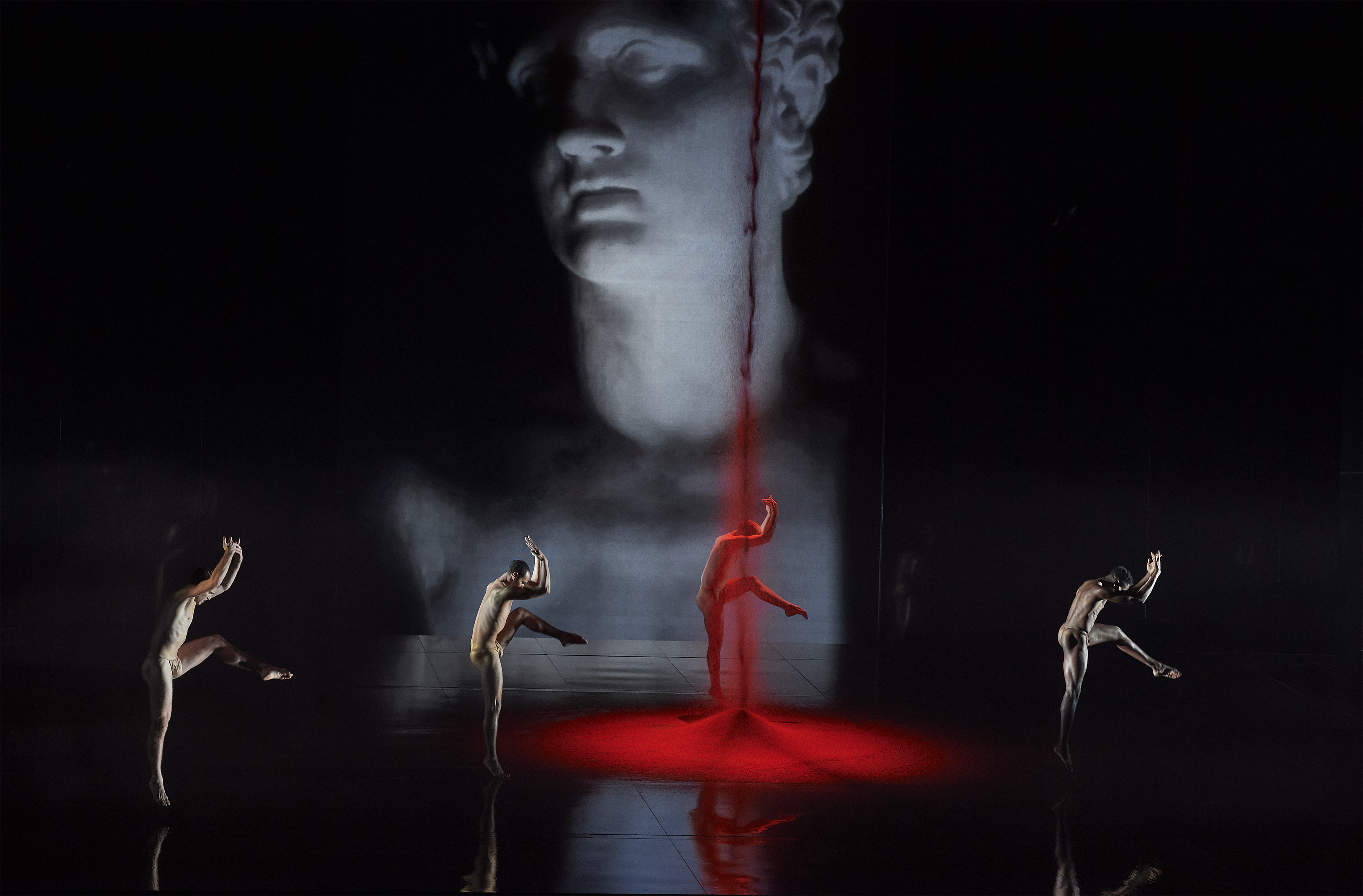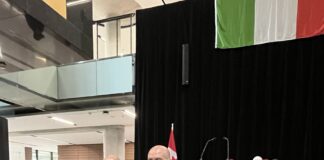The Canadian Opera Company premieres An Opera For Our Time
The Canadian Opera Company took a exciting risk by commissioning an opera from Rufus Wainwright about the fascinating history of the Roman Empire, and one of its most important emperors, Hadrian.
For those unfamiliar with Hadrian, we can say that he was one of the most accomplished roman emperors, active not just in war and territorial expansion, but also very committed to the financial administration of the empire, its politics and the arts. Hadrian (Thomas Hampson) was also known for his passion for weapons, hunting and men, even though he was married to a woman, Vibia Sabina (Ambur Braid).
The opera focuses on the last of the emperor’s aforementioned passions, telling the story of the love affair between him and the Greek youth, Antinous (Isaiah Bell). The opening scene of the drama takes place moments after Antinuos’ death, a supposed drowning in the Nile, though the true causes of his death are still unknown. In these desperate moments, Hadrian considers killing himself, but instead ends up coerced into making a pact with two deities, Plotina and Trajan (Karita Mattila; Roger Honeywell) in exchange for two night with Antinous, and an understanding of the circumstances of his death.
The stunning set, designed by Michael Gianfrancesco, the beautiful costumes designed by Gillian Gallow and the large COC orchestra conducted by Johannes Debus, created a solid support for Hadrian’s time travel. Though the opera was very well orchestrated by Wainwright, the music seemed at times to inaccurately represent the libretto, written by Daniel Macivor, and very often overpowered the singers voices. This was true from the very beginning of the show, though the superb performances by both Ambur Braid and David Leigh as Turbo, provided notable exceptions.
The second act began with the heavily anticipated scene in which the love between Hadrian and Antinous was consummated. Studies in Roman history reveal that in a sexual acts between two men, the penetrator was understood to be the more powerful and of the higher social class. The love scene in Hadrian reversed these roles, establishing Antinous as the penetrator, while otherwise being presented as a youthful muse.
This was a very strong statement, made by the production team. It may have been done to show that the love Hadrian felt for Antinus was so deep and real that he wanted to make a change in the relationship rules of the time, similar to his approach to administrating his empire with innovative thinking and a compassionate soul, or maybe this reversal of roles was simply meant to be provocative, to challenge a bit of history, as written.
Another well-anticipated element of the show was the use of nudity. In this case, attributed to five dancers who frequently appeared during the show. Hadrian seemed to have created an entourage of five naked men (actually clothed in nude thongs) to shadow Antinous, appearing on stage with him in every scene: initially surrounding his tomb, appearing during the sacrifice, the lovemaking, right until his ultimate death.
By Giampiero De Angelis, Edited by Diana Di Mauro. All photos by Michael Cooper, courtesy of the Canadian Opera Company
Featured image: Ambur Braid as Sabina and Thomas Hampson as Hadrian in the Canadian Opera Company’s world premiere production of Hadrian, 2018. Composer Rufus Wainwright and librettist Daniel MacIvor. Conductor Johannes Debus, director Peter Hinton, set designer Michael Gianfrancesco, costume designer Gillian Gallow, lighting designer Bonnie Beecher, projection designer Laurie-Shawn Borzovoy, and choreographer Denise Clarke. Photo: Michael Cooper




